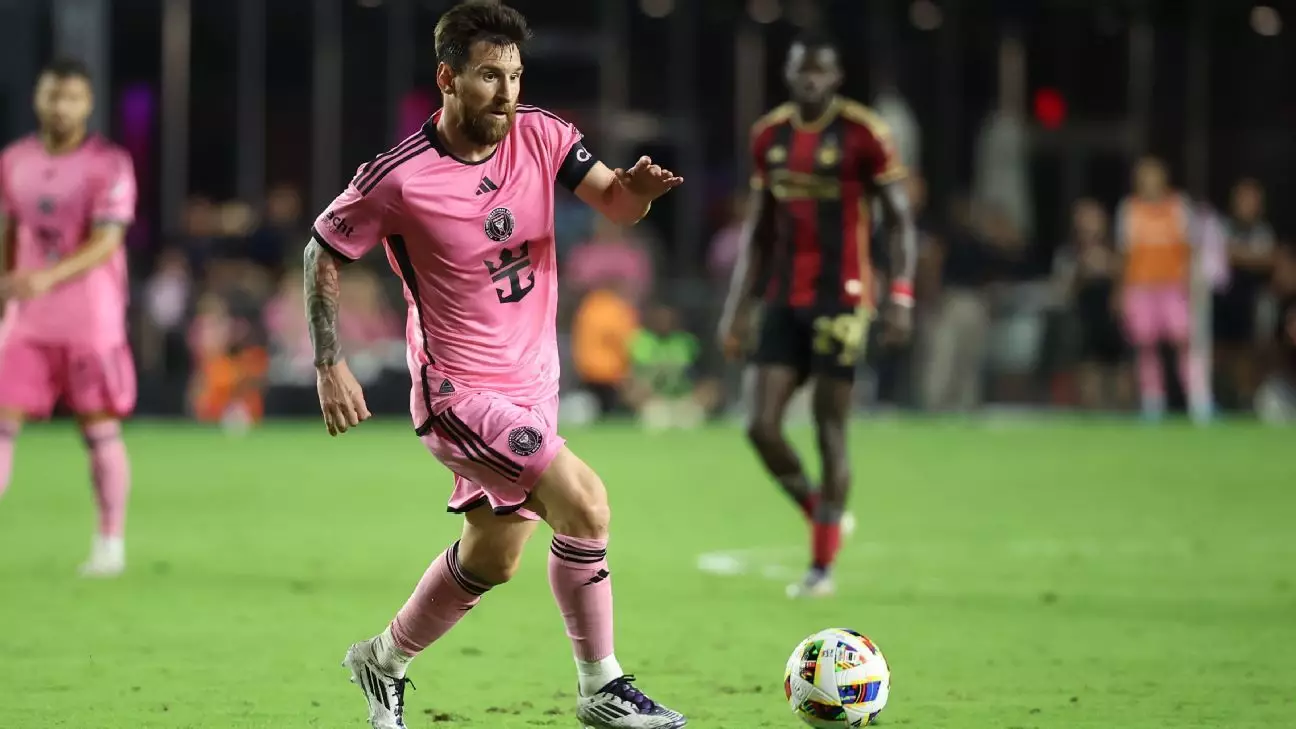Last summer, the arrival of global football icons—Lionel Messi, Sergio Busquets, Jordi Alba, and Luis Suárez—at Inter Miami felt like a dream realized for many fans. Jorge Mas, the managing owner, declared victory even before the season kicked off, boasting of the monumental impact these players would have on soccer in the U.S. “We’ve succeeded,” he stated, crediting the club’s star-studded roster for opening new doors for the sport. However, the reality of sports often diverges vastly from its commercial glamor. The subsequent 2024 season saw Inter Miami set a new MLS points record, winning the much-coveted Supporters’ Shield and becoming a formidable force in the league. Still, the narrative transitioned from celebratory to cautionary as Miami faced an early playoff exit, raising the crucial question: Does success in the regular season overshadow playoff disappointments?
To understand the implications of Miami’s performance, one must reflect on the historical greatness of other MLS teams. The 2017 Toronto FC remains a benchmark against which all teams are measured. With a domestic treble to their name, including an MLS Cup win, the Supporters’ Shield, and success in the Canadian Championship, they established a high standard that included the highest regular-season points record at the time. Led by stars like Sebastian Giovinco and Jozy Altidore, they boasted not only star power but also squad depth and strategic acumen.
Following Toronto’s historic season, D.C. United’s 1998 campaign stands out not only for domestic achievements but also for continental success. Winning the Concacaf Champions League and Copa Interamericana cemented D.C. as a regional powerhouse. Contrasting Miami’s experiences, which lacked such continental prowess and a definitive playoff run, the 1998 D.C. squad showcased a well-rounded roster featuring talents like Eddie Pope and Marco Etcheverry, setting a lofty bar for future teams.
Other teams like LAFC and Atlanta United also come to mind when discussing MLS greatness. LAFC’s 2022 season was a culmination of tactical brilliance and individual flair, with the club clinching both the MLS Cup and Supporters’ Shield in their first year under Steve Cherundolo. Notably, the departure of key players like Gareth Bale post-title raised questions about consistency, but the triumph remained a significant milestone in the franchise’s history.
Atlanta United’s 2018 season redefined expectations with a points tally that rivaled that of clubs like Toronto. They showcased engaging football and an impressive revenge arc in the playoffs, eventually culminating in an MLS Cup victory against the Portland Timbers. Their roster, laden with talent like Josef Martínez and Miguel Almirón, demonstrated that strong season performance could translate into postseason success—something that Inter Miami couldn’t replicate in 2024.
The paradox of Inter Miami’s season is compelling. While being celebrated as the greatest regular-season team ever, with records shattered left and right, their playoff debacle shrouded those accomplishments in a cloud of disappointment. Despite all the hype surrounding Messi and his compatriots, the team failed to convert their regular-season success into any meaningful playoff legacy. The early exit at the hands of Atlanta United overshadowed their record-breaking points total, reviving the old adage in sports: it’s not how you start but how you finish.
The 2024 Inter Miami faced the unfortunate reality of greatness evaluated through the lens of postseason performance. Competing in various tournaments like the Concacaf Champions Cup and the Leagues Cup, the team consistently fell short, leaving room for critics and fans to ponder the nexus of expectation and actual achievement.
As the dust settles on the 2024 season, the future of Inter Miami remains both intriguing and precarious. Will they learn from this year’s disappointments and build a more resilient squad, or will they succumb to the pressures that come with such high expectations? Fans hope for a turnaround that turns the dream team from being regular-season kings to playoff champions.
In juxtaposition to the glorious success of teams like Toronto FC and D.C. United, the measuring stick for Inter Miami now lies in balancing fan expectations and on-field realities. Ultimately, the 2024 season can be described as a profound exploration of the dual nature of professional sports, where reality can frequently dilute the euphoria of high acclaim. Whether Inter Miami can bridge the gap between their celebrated regular-season performance and equally esteemed playoff success will define their narrative in both the MLS and the heart of their audience.

Leave a Reply